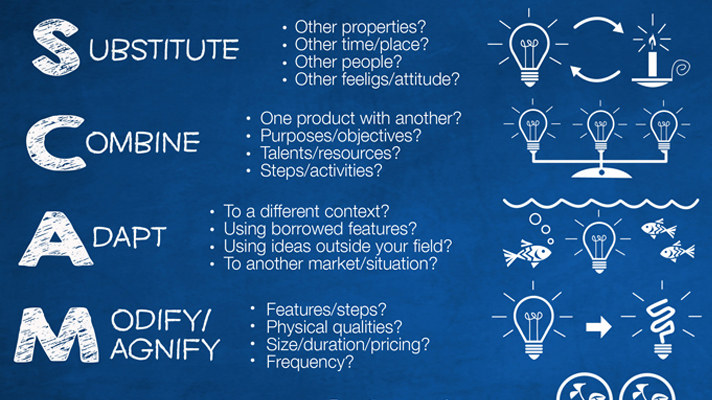Podcast: Download (Duration: 44:26 — 41.5MB)
Get Notified Of Future Episodes Apple Podcasts | Spotify | Amazon Music | Android | Blubrry | Gaana | TuneIn | Deezer | Anghami | RSS | More
The thing you sell today might not be as profitable tomorrow. When an industry or business model is in decline, there are several approaches you can take – James and guest Charley Valher go over them in this podcast episode.
They’ll look at the changing business landscape and how other people, including themselves, have adapted.
They’ll talk about innovation as a means to survive and flourish.
And they’ll discuss the strategies that will serve you well whether the market trends downward or up.
Table of contents
1. The cigar butt phase of business
2. Is a bit of paranoia a good thing?
3. A period of struggle for many
4. What to do when you’re on the edge
5. Looking at AI
6. Different people, different options
7. Charley’s experience of change and moving on
8. What to believe and what to adapt to
9. James’s take on investment
10. Start on the side, or look to the next thing?
11. A market that’s becoming more difficult
12. Specific strategies that worked for Charley
13. Hustle is becoming less a thing
14. The growing attention on health
15. Other areas of opportunity
16. Where the human element has real weight
17. Putting the effort in to get more value
18. The stuff to focus on
19. A bit of parting wisdom
The cigar butt phase of business
Warren Buffett coined the term, “cigar butt investing,” where one would look for businesses nearing their end, buy them at a discount, and sell off the assets to make a profit.
When a business or industry in in that stage of decline, says Charley, when do you get out? Do you ride it to the end? The circumstances and thought processes involved there differ hugely from those in booming, future-oriented industries.
James reflects on his personal experience of transitioning from the car industry, saying that even within growth-oriented businesses, there can be significant shifts. Fifteen years ago, he foresaw the rise of online businesses, and left his job at the car dealership for his own online venture.
Recognizing and adjusting to industry trends, this illustrates, is a fundamental part of surviving in the business world.
Is a bit of paranoia a good thing?
The impact of technology, particularly artificial intelligence (AI), on the job market and businesses provokes in some a sense of fear and paranoia.
James has heard in the news of an ex-Google employee, allegedly fired after voicing concern about the seeming emotions of an AI they had built. There are also reports of companies like British Telecom planning massive layoffs due to technological advances.
How much concern should one should have over such developments, even if their business currently seems secure?
James believes a healthy level of paranoia is a tool for survival, particularly in positions of power or business. Witnessing his parents’ financial struggles, and later the fear of becoming redundant in his job, kept James from complacency. He built his own online business alongside his regular job, before making the switch.
A period of struggle for many
James observes that many people are experiencing difficulties today due to a combination of factors, including the recent pandemic, the shift from offline to online business, market saturation, and increased advertising costs.
The influx of highly talented and competitive individuals from the offline world to internet business has altered the dynamics of the online marketplace. Selling products or services has become more challenging, and many businesses have seen a retraction from their boom periods either pre- or post-pandemic.
Inflation and financial instability, particularly in the US, are other contributing factors to these struggles.
In light of this, James stresses the importance of having a safety net or “a bit of lard in the cabin” to fall back on in times of need. Preparedness, financial planning and a level of financial security, he believes, can help weather potential economic storms.
What to do when you’re on the edge
For businesses on the brink of decline, or “down to the roach pot”, what’s the best course of action?
As James has suggested, Charley advocates having financial reserves, or “war chests,” to weather unexpected shifts like a pandemic or a war.
How long should companies be able to cover expenses, asks James? Having months’ worth of expenses covered would be ideal, they agree.
A key issue is that many businesses are “flying blind,” without basic financial reporting, P&L check-ins, or advisory from accountants or CFOs, leaving them vulnerable when things start going wrong. In addition to having healthy financial buffers, Charley emphasizes the importance of recognizing and responding to signs of decline.
For instance, if an AI business is struggling despite being in a booming industry, it suggests the problem is internal and may require changes. On the other hand, even the best-run business in a dying industry (like Yellow Pages ads) might still struggle due to broader industry trends. In both cases, recognizing the issue and taking proactive steps to address it is essential.
Using the SEO industry as an example, Charley points out that various factors such as increased competition, overseas workers, improvements in technology, and consolidation of big players can all contribute to the industry’s decline and create challenges for businesses. Identifying these factors can influence a company’s strategy moving forward.
Businesses should likewise pay close attention to whether their industry is growing or declining. James mentions the STAR principle, where high returns can be achieved by being the fastest-growing company in the fastest-growing market.
However, he says, there are still opportunities in traditional industries that may not be experiencing hyper-growth. The key is to either capture significant market share or adapt to the industry’s decline, similar to Warren Buffett’s investment strategy.
Looking at AI
A topic of some relevance is the widespread adoption of AI.
James points out that Google has been integrating AI into its services like Gmail and search engine algorithms for years, often unbeknownst to the end user. However, as AI technology has become more visible and commonplace, with over 58% of Americans having used an AI chat tool, the market has seen increased competition.
Even Google faces challenges from rivals like Microsoft’s investment in OpenAI, and this raises concerns for smaller AI companies that may struggle to keep up in this rapidly evolving space.
As AI technology becomes more accessible and easy to use, James observes, it’s potentially becoming a commodity, similar to how website creation has evolved. It’s now possible to build one’s own AI apps using open-source tools, often without needing to code, just as website design can now be done for free using website builders.
With the rapidly changing nature of technology and the market, says James, a currently thriving AI business may not be as successful for long.
Different people, different options
As a recap, says James, in order to prevent business failure, it’s important to have robust reporting that recognizes when a business is in trouble, and to maintain some financial runway for space to make good choices.
James and Charley then discuss how different businesses and individuals might react differently to decline, due to psychological reasons or differing skills.
For example, someone may not have the skill set or the will to sell off assets, leading to eventual bankruptcy. Others might see the signs and move to exit a declining business and invest in a growing industry instead.
There’s value, says Charley, in liquidators, or people who can dismantle and sell off parts of a company. For instance, an owner of an SEO company in decline might have assets like developers, designers, and writers. To an owner of a thriving paid advertising agency, those assets could be highly valuable and worth absorbing into their own company.
Meantime, the owner of the SEO company might not see the same value in those assets, prompting them to sell. There are differing perceptions of value.
Charley points to individuals who buy returned goods from Amazon and resell them, getting value from assets that Amazon doesn’t want. Similarly, a block of land is either a place to live or a development site based on the person assessing it.
Charley’s experience of change and moving on
Charley shares his personal experience of navigating change and pivoting within his business endeavors.
Taking James’s advice years ago, Charley focused on paid ads, a critical turning point in his career. That decision sparked his interest in digital media and marketing, which became a significant part of his business.
Although this move was hugely beneficial for him, Charley admits it might not have been the right decision for everyone, underscoring the need for individualized strategies in business.
Charley says he’s had great success in moving on when he recognizes an industry or business is in decline. He’s been able, he says, to identify and ride the wave of new and emerging trends, citing his early involvement in paid ads, the VA industry, and the podcasting scene.
In contrast to strategies that revive or capitalize on declining businesses, Charley encourages those who share his approach to consider moving on when faced with a declining industry, and seek out fresh opportunities that align with emerging trends.
What to believe and what to adapt to
Constant change is a reality, especially in industries like AI and the internet. And rather than be pessimistic about it, James And Charley stress the need to adapt.
Society continues to evolve and create new opportunities. For instance, the emergence of jobs related to AI prompts was unimaginable just a few years ago.
James recognizes Charley’s knack for predicting online trends and pivoting his interests accordingly.
When it comes to investments, however, Charley confesses a preference for real estate, considering it a way to diversify from his digital ventures.
Despite being a more traditional and less fast-paced investment, real estate appeals to Charley due to its scarcity in desirable areas and the benefits it can bring when paired with his business. It serves as a reminder that even amid rapid technological changes, some classic investment options remain attractive.
James’s take on investment
James emphasizes the need for a balanced approach to investment. While he generates income in technology-related areas, he, like Charley, prefers to retain and grow his wealth in more tangible assets, such as real estate.
James has a preference for creating and selling rather than buying. He did, however, have the experience of buying 200 websites at a low price, then reselling just one domain name from the lot for more than the cost of the whole portfolio.
James advises listeners to understand their personal strengths and invest accordingly, whether that means predicting trends, squeezing the last bits of value from declining industries, or acquiring undervalued assets to refurbish and resell.
And it’s possible, he says, to be successful in multiple areas. He recounts a year when he purchased hundreds of domain names at auction, a sound investment as he later resold or used them for several years.
So do some self-reflection, he urges, and identify strategies that have yielded the best results in the past.
Start on the side, or look to the next thing?
Many agency owners are currently struggling to acquire customers and cope with rising costs. Which prompts the question: should such owners start something new on the side or stay on, hoping to break through in their existing venture?
Having financial buffers, says Charley, will enable owners to invest in change or transition to new ventures. However, supposing there is no buffer, he proposes pursuing a new venture on the side, just enough to gain validation and confidence that it could be a successful alternative.
Expanding on this, Charley warns against trying to replace the income from the current agency with the side business right away – it could lead to failure in both. Instead, he suggests starting with a plan, speaking with industry experts, and possibly securing one client or developing one product as proof of concept.
Once this confidence is established, the owner can then aggressively transition to the new venture.
A market that’s becoming more difficult
Charley knows firsthand the current struggles in the agency market, and is all for seeking validation and then moving toward new opportunities. He argues that taking advantage of emerging trends can significantly outweigh what can be achieved in a difficult market.
James concurs, speaking of an agency client who found the market harder than in the previous year, while some partners were thriving due to their ability to quickly identify good opportunities.
James has made his own significant changes to his business in response to market conditions, innovating and changing everything from the product, target audience, messaging, to delivery. He also emphasizes the importance of having layers of protection in business, to avoid desperate moves or compromises.
James suggests a focused approach to client selection, likening it to hitting the bullseye in archery. He advises identifying the unique strength of the agency, the best clients, and why they chose the agency. By focusing on the most valuable clients, there’s the chance to bring in another target or business model, and successfully transition to new opportunities.
Specific strategies that worked for Charley
Charley describes his agency’s success over the last year, attributing it to their focus on short video advertisements across platforms like Facebook, TikTok, and YouTube. This specialization, according to him, allowed them to outperform competitors, establish a unique market niche, and attract ideal clients.
Charley speaks to the importance of delivering outstanding results within a well-defined area, saying this has allowed his agency to build a strong position. He further advises agency owners to seek out new waves of businesses in need of agency services that are currently under-served.
As an example, he mentions the burgeoning green energy sector, suggesting that it could be a powerful niche for agencies to focus on. He also reminds that while his agency focused on video, there are many other growing areas where agencies could potentially serve better and outperform.
James reiterates Charley’s points, repeating the need to identify which part of the business is most effective. In addition to this, he suggests considering other factors, such as whether a specific market segment is growing or shrinking, and if it’s currently in vogue.
Hustle is becoming less a thing
There’s been a shift in culture, says James, from “hustling” to a more lifestyle-focused, avoid-burnout approach.
James credits the early influence of books like Tim Ferriss’s “The 4-Hour Workweek,”. Even the extreme work ethic of entrepreneurs like Gary Vee has given way to a message of empathy, love, and self-care. Arianna Huffington’s emphasis on rest and sleep is another example of the changing narrative.
James has long spoken on the dangers of overemphasis on work, comparing extreme workaholics to Olympic athletes who end up as “scraps on the side of the road” after their moment of glory. He believes that overwork and an imbalance between professional and personal life can lead to burnout and eventually, a poor quality of life post-career.
James promotes instead a sustainable approach to work and life, focusing on personal development, physical health, business growth, and family, all at the same time. He praises Charley’s philosophy of building a life that one wouldn’t want to retire from, resonating with his own belief in a balanced, fulfilling lifestyle rather than extreme, unsustainable levels of performance.
The growing attention on health
There is, too, says Charley, a growing emphasis on health. James concurs. He’s got his Oura ring, and is aware of the public’s greater awareness of and control over their own health choices.
James also mentions concern about the current quality of food, and is grateful for access to good-quality nutrition and healthcare.
Charley has had the recent experience of using a continuous glucose monitor. He suggests that the emerging focus on health, particularly through health technology and personal wellness, could present exciting new market opportunities for those listening to their conversation.
Other areas of opportunity
Then there’s the growing needs of the retiring and aging population. Charley cites, for instance, the installation of accessibility equipment – ramps, lifts and the like. He believes catering to these needs could provide a potential opportunity for people in declining industries.
James has some concern over how long the public can fund such services through taxes, and hints at an impending boom in the industry, given the number of individuals in the older generation.
James also observes the demand for various labor services in less-populated areas, such as mowing lawns, cleaning pools, car detailing. There’s a lack of supply for these services – he knows of a local car tuner who had to stop servicing due to the overwhelming demand.
There’s great potential there for setting up service industries in those areas to fill the unmet demands.
Geographical shifts are another potential trend to capitalize on. Charley suggests even agencies that have been operating virtually could consider moving into a developing area and setting up a local office, which could offer new advantage.
Where the human element has real weight
Given the rise of automation and AI technologies, human interaction in businesses have increasing value. James markets his own services by promising real human interaction, countering the trend of AI chatbots in customer service.
James had a recent, unsatisfying experience with a chatbot and believes his clients, like him, would prefer live calls with real people over automated responses. He suggests that being able to speak to a human has become, in fact, a premium service.
Putting the effort in to get more value
James recommends finding maximum value with minimum effort. As an example, he shares his experience of putting in the time, using AI, to write a creative and engaging ad for his unused Peloton. The unique ad caught the attention of a buyer who purchased it because of the advertisement’s charm. James suggests that such effort can be beneficial for sellers, helping them to get more value out of their sales.
That wins Charley’s admiration, the creative use of AI in advertising. He recalls their mutual friend, Lloyd, using a similar technique to sell his couch.
The stuff to focus on
It’s important, says James, to not dwell on past possessions or failures, and instead, focus on one’s current skills, successes, and interests. He encourages conducting a self-inventory, assessing one’s assets, skills, past triumphs, preferences, and perceived opportunities – focusing on these positive aspects can provide direction for future efforts in periods of decline.
James suggests seeking external help if needed, highlighting the potential benefit of understanding trends in various sectors.
Charley’s podcast, BusinessandInvesting.com, can offer insights into trends in business and investment. And James, has an extensive archive of case studies and his membership community available for further assistance and learning.
Communal help is great, says James, for navigating difficulties. There’s huge benefit in hearing about others’ challenges and how they overcame them.
A bit of parting wisdom
Charley recommends prompt decision-making when facing a declining industry or market. He believes that indecision and the opportunity cost can have a detrimental mental effect, and emphasizes the importance of change as a strategy for success.
James has previously shared the story of a local surf shop on the brink of closure due to rent increase. He recounts how the shop owner resisted marketing to existing customers due to fear of bothering them.
The owner eventually accepted James’s help, and with their efforts they sold almost all the stock at closing. Had the owner embraced this approach earlier, says James, he might still be in business.
James and Charley look forward to discussing more topics in future episodes, including navigating challenges and the art of networking.
Need help with your podcast content? Look up Charley at ValherMedia.com
Enjoyed the show? Leave us a review on iTunes













Leave a Reply